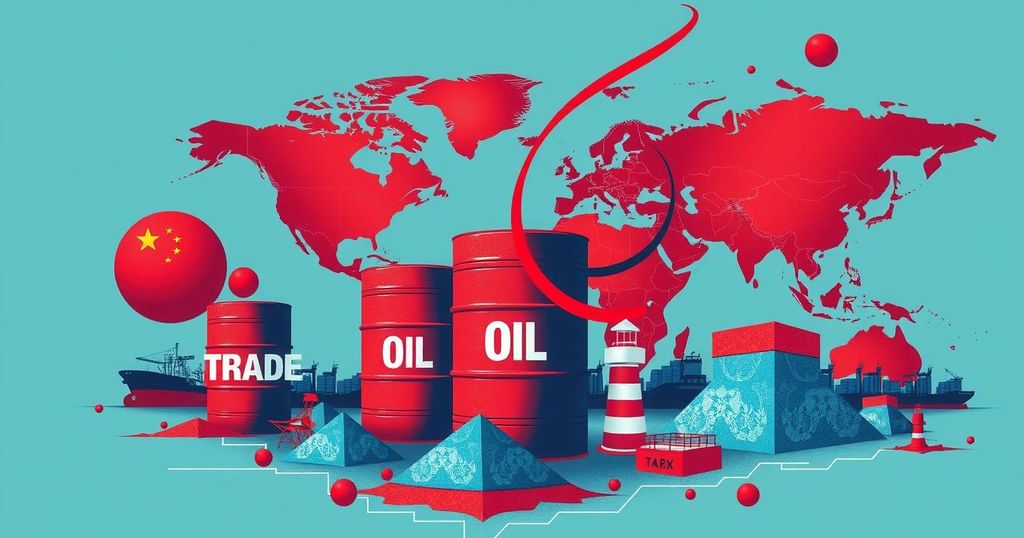Niger Withdraws from Military Force while Trump Threatens Tariffs on Russian Oil
Niger withdraws from the Lake Chad military force combating terrorism. U.S. President Trump expresses frustration with Russia, threatening tariffs on Russian oil if they obstruct Ukraine negotiations. These developments highlight shifting dynamics in regional and international security and economic relations.
Niger has announced its withdrawal from the Lake Chad military force tasked with combating terrorist groups, signaling a significant shift in regional security dynamics. This decision could impact ongoing multilateral efforts aimed at stabilizing the area, which has been plagued by violence due to terrorist activities. The withdrawal raises concerns about the implications for local security and the potential rise in extremist threats in the region.
In other global developments, U.S. President Donald Trump expressed strong discontent with Russian President Vladimir Putin, publicly stating he is “pissed off” and threatened to impose heavy tariffs on Russian oil if Moscow obstructs peace talks concerning the war in Ukraine. Trump articulated a readiness to implement secondary tariffs ranging from 25 to 50 percent on oil purchasers from Russia, which he views as a potential leverage point in diplomatic negotiations.
During an interview with NBC News, Trump articulated his frustration over Putin’s recent comments questioning Ukrainian President Volodymyr Zelensky’s leadership credibility. He indicated that should negotiations fail and Russia’s actions obstruct progress, he would resort to imposing such tariffs swiftly, potentially within a month.
The Kremlin’s reaction to Trump’s threats was not immediate, but historically, Russia has denounced Western sanctions as unjust. As Trump prepares for a forthcoming conversation with Putin, he has acknowledged the strained interactions prompted by the ongoing conflict that began in February 2022. Trump continues to emphasize the urgency of resolving what he term a “ridiculous” war, aiming to push for a ceasefire amid rising tensions.
In a related context, Finnish President Alexander Stubb visited Trump recently and urged the necessity of establishing a deadline for a ceasefire, proposing April 20 as a potential target date. U.S. officials are concurrently engaging Ukraine in discussions surrounding critical minerals agreements that have significant implications for resource management and revenue generation in Ukraine.
Trump has set precedents for imposing tariffs on countries that procure oil from Venezuela, indicating a willingness to extend similar punitive measures towards nations engaging with Russia. This strategy poses potential economic difficulties for nations such as China and India, which are heavily invested in Russian energy supplies. Furthermore, Trump’s willingness to extend sanctions to Iranian oil buyers further illustrates his administration’s robust approach to international trade and diplomacy.
In conclusion, Niger’s withdrawal from the Lake Chad military force raises significant concerns about regional security in the face of terrorism. Concurrently, President Trump’s expressed frustrations with Russia highlight a shift in U.S. foreign policy, particularly regarding potential tariffs on Russian oil. The impending talks with Putin, along with measures affecting relations with key allies such as India and China, signal a complex interplay of diplomacy and economic strategy in the ongoing Ukrainian conflict.
Original Source: www.arabnews.pk








Post Comment